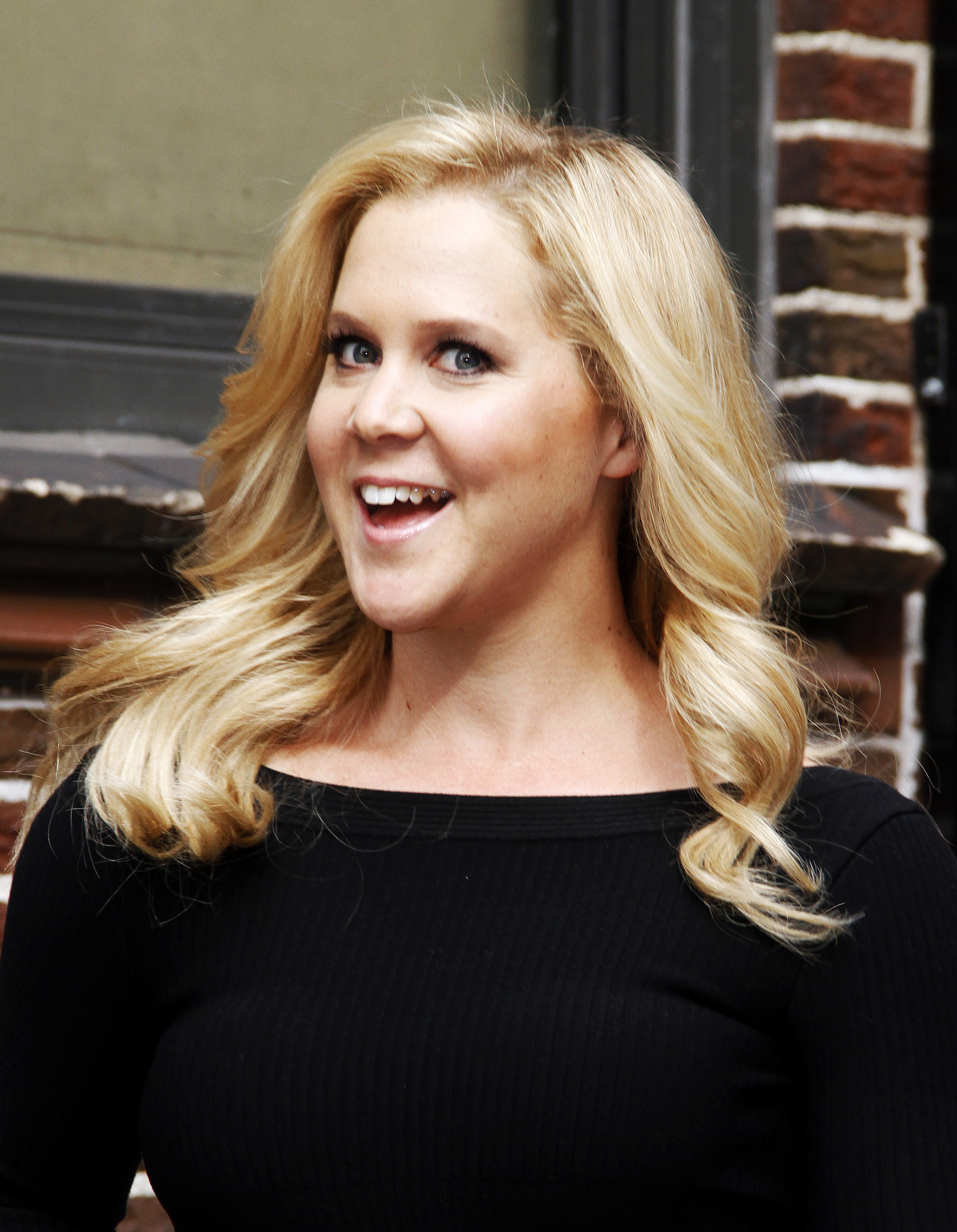
Ads for the second season of comedienne Amy Schumer’s sketch show, Inside Amy Schumer, promised viewers one thing in bold capital letters in advance of the premiere Tuesday night: “HOT. MESS.”
For hip kids familiar with that slang term, it’s easy to see why promoters chose it to sum up the program—one in which the blonde-haired, blue-eyed Schumer spills sandwiches on herself and considers participating in “low budge” pornography.
In Schumer’s case, the operable definition of hot mess would be something like “(n.), someone in obvious disarray or disorganization, esp. while remaining attractive in spite of this.” But the history of hot mess goes back to a time when Schumer’s dark brand of feminist comedy would have sent the Suffragettes reeling to their fainting couches.
In the 1800s, someone mentioning a “hot mess” was likely talking about food, especially food being served to soldiers. “When the inspection was over,” writes Arthur Duke of Wellington in 1880, “the Major-General asked the men if they had any complaints, upon which about half the battalion fell out, to complain of being deprived of their hot mess.” In Latin, missus refers to a portion of food, and for centuries its descendant mess literally referred to a meal or the amount of food needed to make a meal (“We cut a mess ’a pork here.”) or even the amount of milk a cow gives at one milking (“Ol’ Bess, she gives a good mess.”).
By the early 1900s, Americans were using “hot mess” in a figurative sense, to describe spots of trouble or unpleasant, confusing situations. Kory Stamper, associate editor at Merriam-Webster, dug up one example from Pall Mall Magazine, in a 1907 fictional account of mounted police who appear to be encountering mountain people: “‘Now, ef I says the word, yo’ll be in a hot mess in about one minute!’” a character announces, “’Mounters’ ain’t ‘lowed in ‘yar!’” In a 1912 book about Andrew Jackson, the author describes the former president as a man who “was pretty apt to make a nice hot mess” of things. You know, with that temperament of his.
In the South Midland region of the U.S., encompassing parts of states like Georgia, Kentucky, Virginia, Tennessee and Alabama, “mess” is used to describe an “objectionable or foolish person.” Ben Zimmer, executive director at Vocabulary.com, points out that none other than Scarlett O’Hara called Melanie a “mealy-mouthed little mess” in the 1936 novel Gone With the Wind.
Zimmer also points out that “mess” and “hot” both have an abundance of slang meanings. Mess can describe an eccentric person, a large quantity or something both “praiseworthy” and “confusing.” Hot can be used to describe someone daring, flamboyant, uninhibited, wild, intense, lustful, sexy or drunk.
When the two are put together, they can refer to stolen goods, as recorded in dictionaries of criminal slang. They can also stand in for things that are just as NSFW as Schumer’s show. Erotic writer Nicholson Baker has used hot mess to describe what a man produces after his climax, while Stephen King has used the phrase to euphemize what everyone must do at some point, hopefully in the privy. Such dirty meanings may be what language columnist William Safire had in mind when he wrote in 2008 about “the cleaned-up meaning of hot mess,” which “has come to mean ‘disheveled’ or ‘incompetent,’ as in ‘I was a hot mess this morning before I hit the shower.’”
That meaning, roughly the same used a la Schumer, started showing up regularly about a decade ago, Stamper says. Both he and Zimmer note that it experienced an enormous jump after Project-Runway-contestant-turned-full-fledged-fashion-designer Christian Siriano started categorizing things as “hot (tranny) messes” on that reality show circa 2007.
It’s unclear which of the older meanings of hot and mess someone was drawing on when first using hot mess to sum up a dysfunctional but perhaps still appealing person. What is more certain is that Schumer’s on-screen character is going to deliver on the promise to exemplify it. “Please God, let me not have herpes!” she pleads in the season premiere. God, played by Paul Giamatti in a white turtleneck, appears, noting that the last time she contacted him was when pleading for the “green knights” to win at Medieval Times. “I really need,” he sighs, “to stop making so many white girls.”
This is an edition of Wednesday Words, a weekly feature on language. For the previous post, click here.
More Must-Reads from TIME
- Introducing the 2024 TIME100 Next
- The Reinvention of J.D. Vance
- How to Survive Election Season Without Losing Your Mind
- Welcome to the Golden Age of Scams
- Did the Pandemic Break Our Brains?
- The Many Lives of Jack Antonoff
- 33 True Crime Documentaries That Shaped the Genre
- Why Gut Health Issues Are More Common in Women
Contact us at letters@time.com